Pathophysiology Chronic Kidney Disease
Pathophysiology chronic kidney disease. The presence of anemia in patients with CKD has a wide range of clinically important consequences. Chronic kidney disease results due to decreased renal function that will interfere with the kidneys ability to maintain fluid and electrolyte homeostasis. The damaged nephrons cant filter blood as well.
There is a trigger that damages the nephrons. A compilation of factors discussed in this chapter that contribute to. Pathophysiology of Chronic Kidney Disease.
14 linhas Stage 1. Pathophysiology of Hypertension in Chronic Kidney Disease The pathogenesis of hypertension in CKD is complex. A decrease in glomerular filtration rate GFR for Stage.
This stage is broken up into two. Diagnosis is determined only by laboratory studies. The impairment of the tubulointerstitium tubulointerstitial fibrosis and tubular atrophy is at least as important as that of the glomeruli glomerulosclerosis.
Regardless of the etiology chronic kidney disease is characterized by renal fibrosis - glomerulosclerosis and tubulointerstitial fibrosis. Proteinuria or hematuria andor a reduction in the glomerular filtration rate for more than 3 months duration. Chronic kidney diseaseppt 1.
Some of the symptoms that were previously attributed to reduced renal function are in fact a consequence of anemia. Kidney damage with normal or increased GFR 90 mLmin173 m 2 Stage 2. There is a remarkable breadth of factors implicated in BP dysregulation in CKD.
Chronic kidney disease stage 3 Pathophysiology. The pivotal importance of the kidney in volume homeostasis through its sodium excretory role RAAS regulation sympathetic hyperactivity endothelial dysfunction and the greater susceptibility to inflammation and oxidative stress in CKD all contribute to the pathophysiology of elevated blood pressure in patients with impaired kidney function.
Known worldwide chronic kidney disease CKD is a disease that affects up to 4 of the population with increasing figures also in the developing countries.
Regardless of the etiology chronic kidney disease is characterized by renal fibrosis - glomerulosclerosis and tubulointerstitial fibrosis. A decrease in glomerular filtration rate GFR for Stage. Anemia is one of the laboratory and clinical findings of chronic kidney diseases CKD. There is a remarkable breadth of factors implicated in BP dysregulation in CKD. Proteinuria or hematuria andor a reduction in the glomerular filtration rate for more than 3 months duration. Some of the symptoms that were previously attributed to reduced renal function are in fact a consequence of anemia. The presence of anemia in patients with CKD has a wide range of clinically important consequences. Known worldwide chronic kidney disease CKD is a disease that affects up to 4 of the population with increasing figures also in the developing countries. Chronic kidney disease CKD is a common condition that is often unrecognized until the most advanced stages.
The nephrons are the functional part of the kidney they do all the work to filter the blood so when the nephrons are damaged its bad news. Involves progressive irreversible loss of kidney function Defined as either presence of Kidney damage Pathological abnormalities Glomerular filtration rate GFR. Pathophysiology of Hypertension in Chronic Kidney Disease The pathogenesis of hypertension in CKD is complex. Patient with stage 3 chronic kidney disease CKD has moderate kidney damage. Regardless of the etiology chronic kidney disease is characterized by renal fibrosis - glomerulosclerosis and tubulointerstitial fibrosis. Known worldwide chronic kidney disease CKD is a disease that affects up to 4 of the population with increasing figures also in the developing countries. The presence of anemia in patients with CKD has a wide range of clinically important consequences.








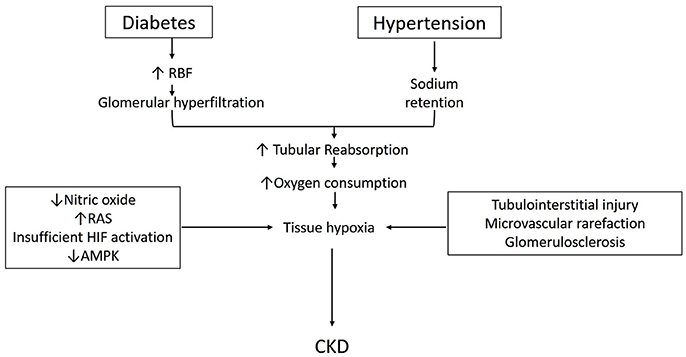






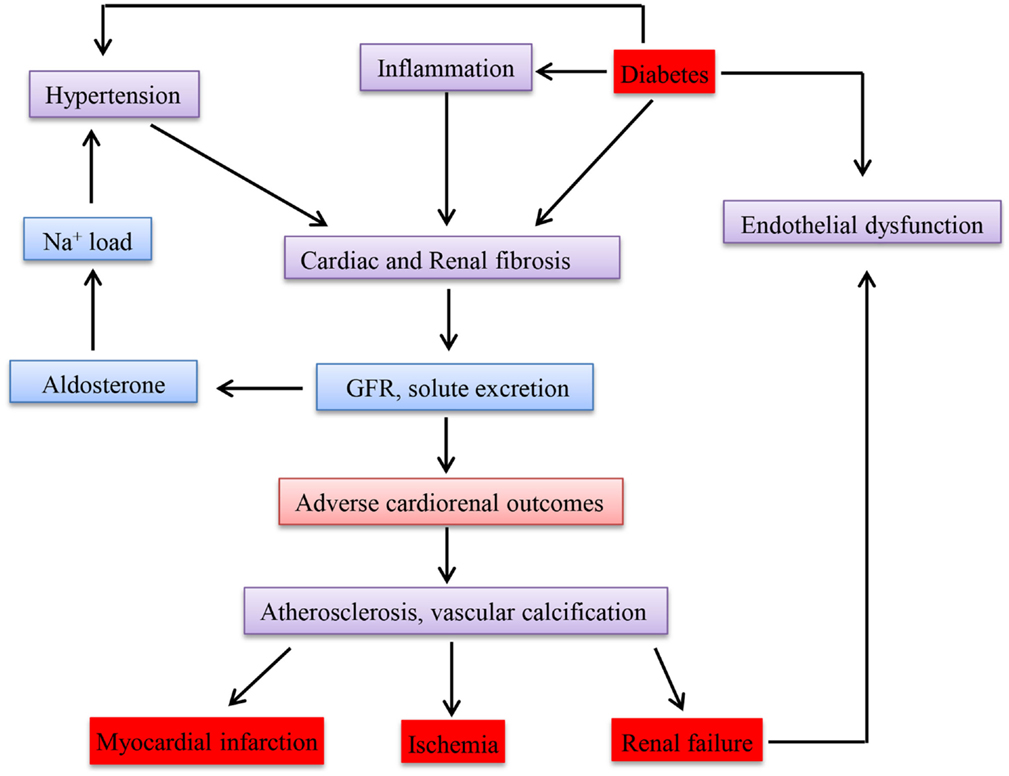







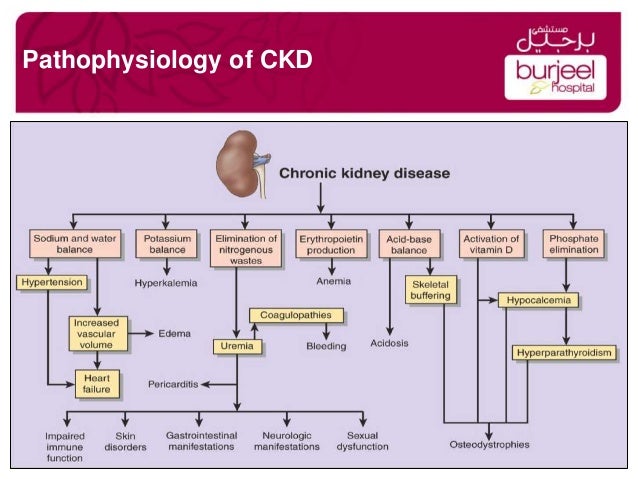
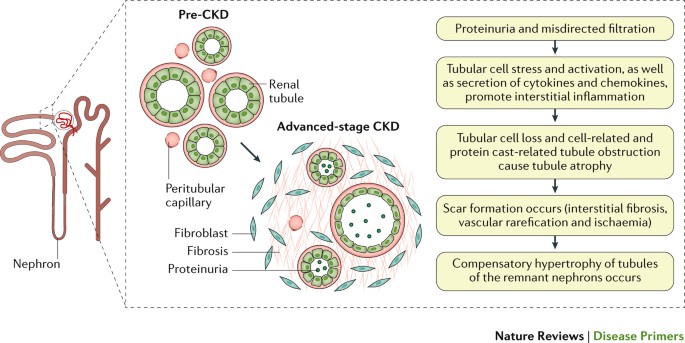
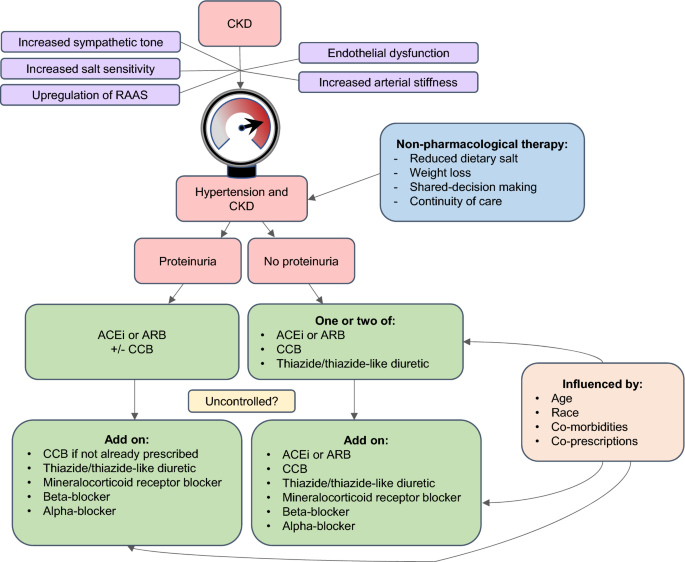



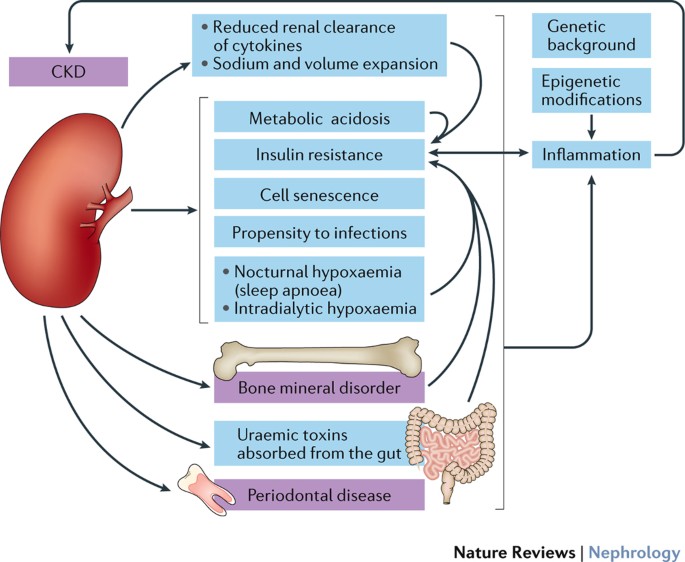


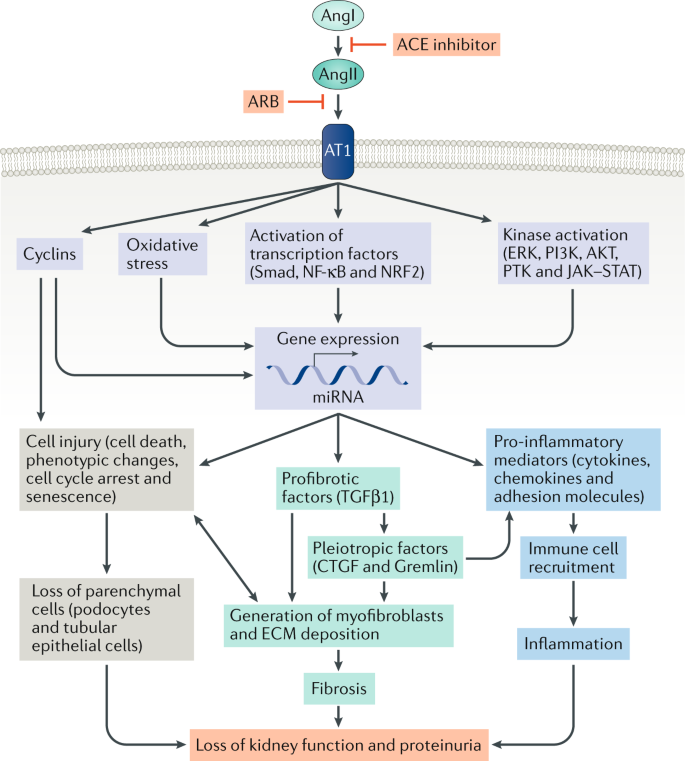




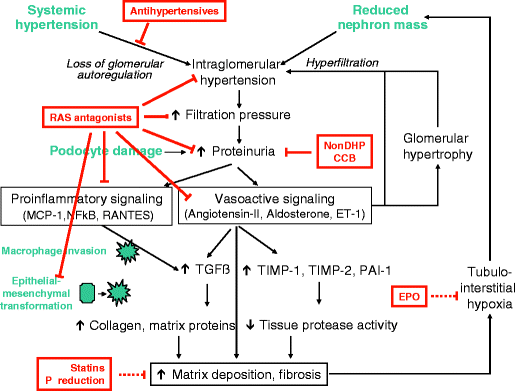


Posting Komentar untuk "Pathophysiology Chronic Kidney Disease"